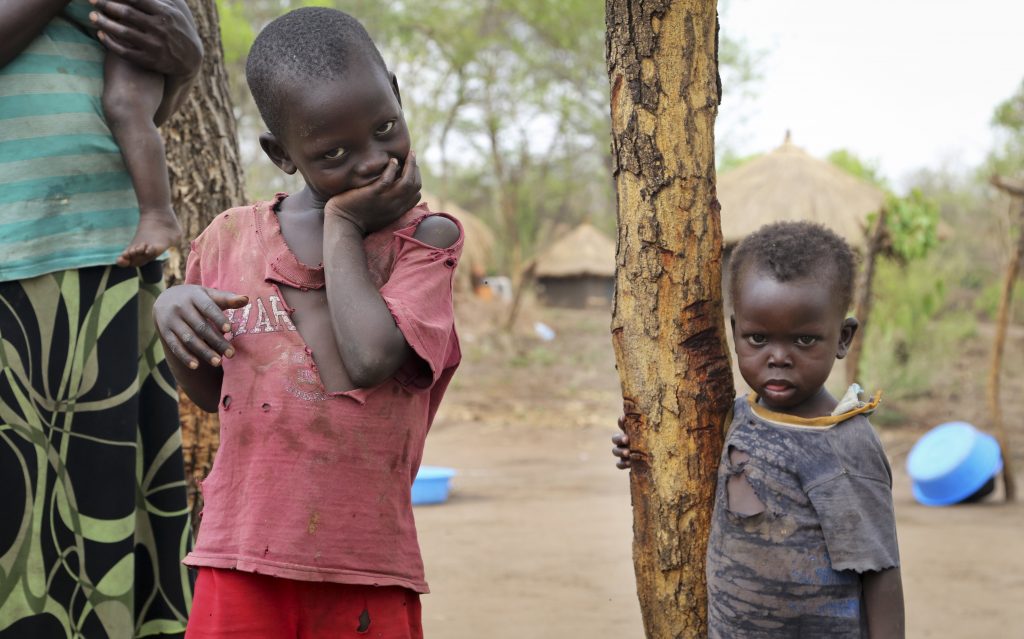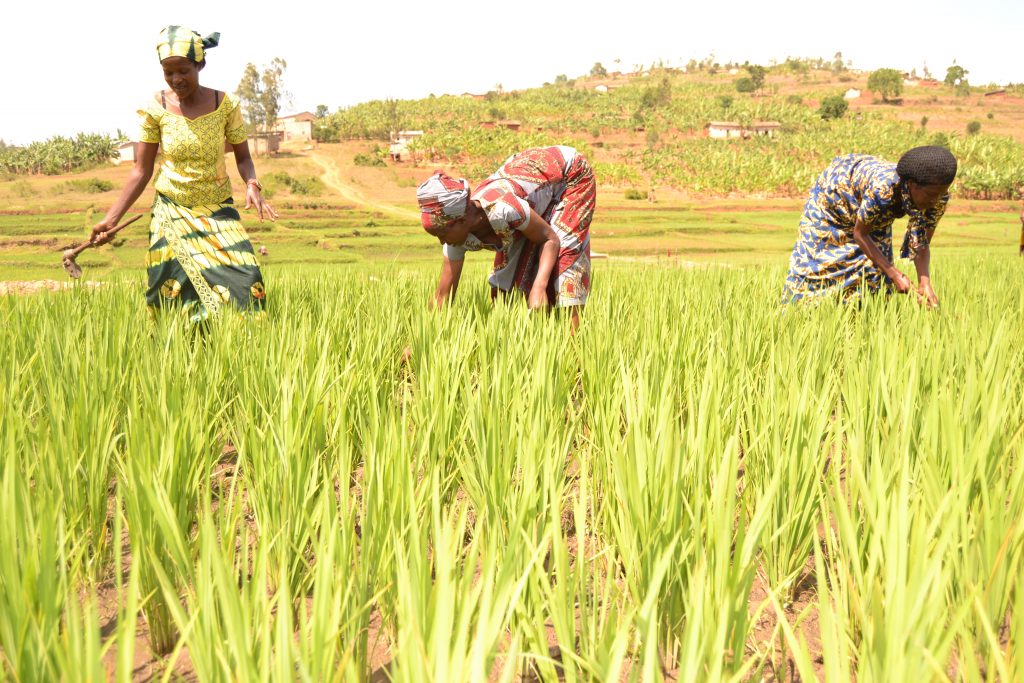Ending hunger and malnutrition will help achieve lasting peace in the world – Adesina

The African Development Bank President Akinwumi Adesina believes that ending hunger and malnutrition will contribute greatly into bringing lasting peace across the Globe. Hunger, as experts say has been a main contributor to instabilities across the world, mainly in developing countries.
“Together, let’s end hunger in Africa. Together, let’s end hunger in our world,” said Adesina who won several prizes in relation to agriculture and food security and peace.
According to the recent UN report, an estimated 820 million cannot have enough to eat rising up from 811 million last year and has been increasing for the last three years – one in very nine people is estimated to be suffering from hunger.
This poses a challenge towards achieving Zero hunger target under the Sustainable Development Goals (SDGs) by 2030.
Adesina who is also the Patron of World Hunger Fighters Foundation pledged his commitment and financing towards bolstering efforts to fight hunger and malnutrition.
“When I won the World Food Prize in 2017 and the Sunhak Peace Prize in 2019, I pledged the prize money and a few matching donations totaling $1.1 million to the creation of the World Hunger Fighters Foundation,” he said.
He adds, “This young crop of hunger fighters and agripreneurs will pick up the baton and in turn, do great things across the world.”
Accordingly, World Food Prize Foundation is partnering with the newly launched World Hunger Fighters Foundation to provide year-long fellowships to young African food innovators and entrepreneurs, an approach that is expected to provide a sustainable solution to hunger.
The World Hunger Fighters Foundation will award annual Borlaug-Adesina Fellowships to young Africans to develop new technologies, champion public policy, and develop viable businesses in the field of agriculture.
Of 1,300 applications, 10 outstanding African youth have been selected for the 2019 Borlaug-Adesina Fellowship.
The fellows are Lourena Arone Maxwell (Mozambique), John Agboola (Nigeria),
Adonai Matha Sant’ Anna (Benin), Olufemi Adesina (Nigeria), Ifeoluwa Olatayo
(Nigeria), Victor Mugo (Kenya), Emmanuel Maduka (Nigeria), Marianne Enow-Tabi
(Cameroon), Solomon Amoabeng Nimako (Ghana), and Nicholas Alifa (Nigeria).
The young leaders will gain experience in international agriculture research
centres, including food and agribusiness companies.
Experts say that agriculture is likely to be a source of peace in Africa
through provision of jobs as well as food for all. In countries like DRC, agriculture is being
used to reintegrate ex combatants of various militias in the country.
“The problem of youth unemployment, criminality, and many other related problems will be solved substantially if we take agribusiness, food security, and social security altogether,” said Olusegun Obasanjo former Nigerian president.
He adds, “One of the feedbacks from this year’s World Food Prize event is that agriculture should not be taken as a development affair, but rather as a business.”
The late Nobel peace prize laureate, Dr. Norman Borlaug, whose work helped feed one billion people, used his award to set up the World Food Prize Foundation. It annually awards the prestigious World Food Prize, known as the Nobel prize for food and agriculture.

Rapid Urbanisation providing cities with opportunities – Report
The report, Creating Livable Cities: Regional Perspectives, looks at urbanization trends across emerging and developing economies in Africa; Asia and the Pacific
Rapid urbanization has provided most cities in the world with opportunities to provide more sustainable, vibrant, and prosperous centers for their citizens, the report says.
The report, Creating Livable Cities: Regional Perspectives looks at urbanization trends across emerging and developing economies in Africa, Asia and the Pacific, Eastern Europe, Southern and Eastern Mediterranean, and Latin America and the Caribbean.
But hurdles still remain, such as inadequate infrastructure investments,
pollution and congestion, and poor urban planning.
The report is published by the
Regional Development Banks (RDBs)
—African Development Bank-AfDB, Asian Development Bank (ADB), European Bank for
Reconstruction and Development (EBRD), and Inter-American Development Bank
(IDB).
“Cities offer access to key infrastructure, institutions, and services for a
good quality of life,” said Takehiko Nakao, President, Asian Development Bank.
He added, “They can be centers of innovation for a more livable future for
all. But realizing that potential requires forward thinking and flexible
planning, adequate capacity at the municipal level, and good governance.”
Accordingly, the world’s urban population has grown from just 750 million in
1950 (or 31% of the total population) to 4.2 billion in 2018 (55% of the total
population)—a number that is estimated to reach 5.2 billion in 2030 (60% of the
total population).
Whilst the majority of leading economic hubs are still in advanced economies, the center of economic activity is moving toward the developing and emerging markets, the report says.
Asia and Africa will account for 90% of urban population growth between
2018 and 2050, with more than a third of this growth to happen in just three
countries—the People’s Republic of China (PRC), India, and Nigeria.
Although large and still dominant, megacities of more than 10 million people
and national capitals are not the fastest-growing urban areas. Urban areas with
fewer than 1 million residents account for 59% of the world’s urban population
and are experiencing a faster growth rate across the regions, the report
says.
“We are helping to open up rural areas to development as a means of reversing
migration trends. To do this, we are investing in skill upgrades, creating
jobs, providing access to SME finance for young men and women,” said Akinwumi Adesina,President of the
African Development Bank.
Cities need large scale investments to develop and maintain infrastructure and services such as urban transport, water supply, sanitation, and solid waste management.
In the face of rapid growth, overstretched services, skills shortages, and
increased vulnerabilities to disasters are adding to cities’ environmental
stress.
Making cities more livable is one of the seven operational priorities of ADB’s
Strategy 2030. ADB’s Livable Cities approach puts people and communities at the
center of urban development, and promotes strengthening urban institutions
through holistic and participatory urban planning and sustainable financing,
and use of data and digital technologies to improve urban services to the
residents.

